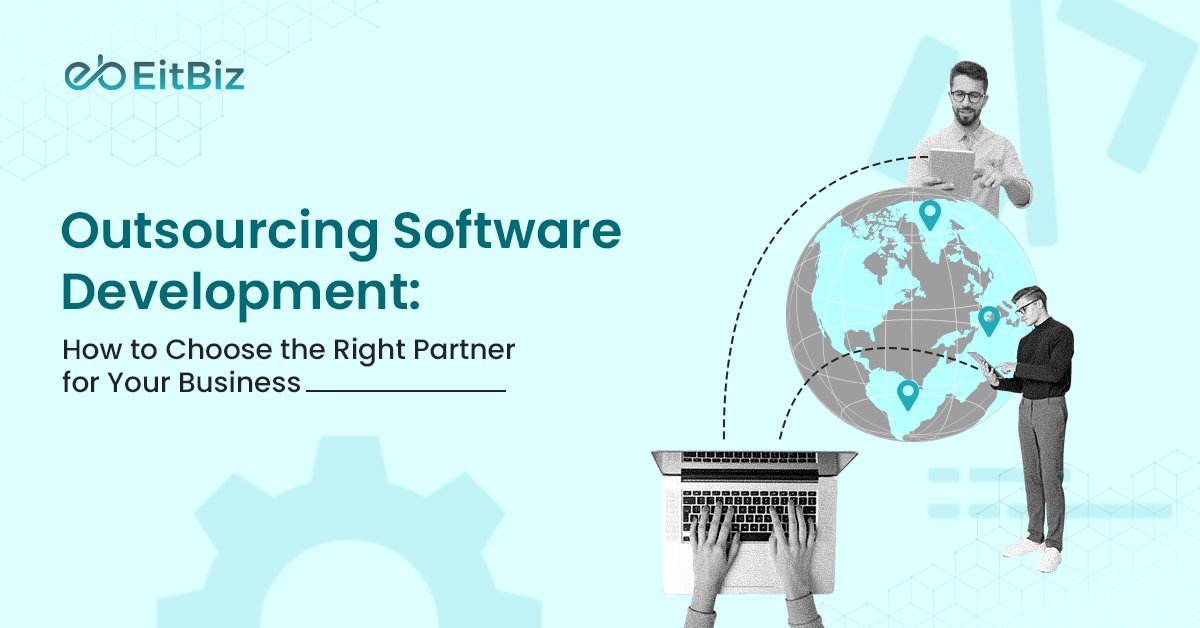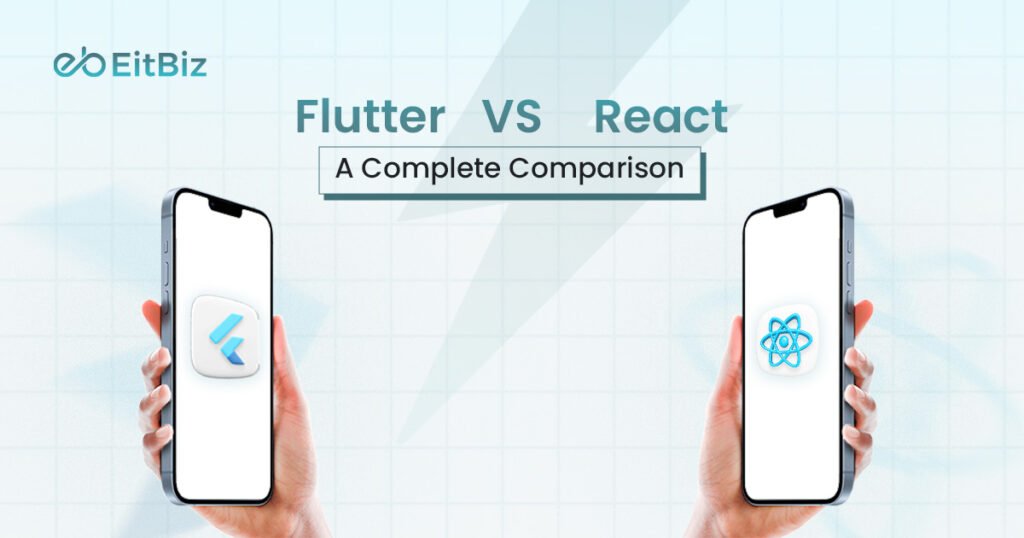Let’s face it!
Coming up with a software idea is the fun part. That “aha!” moment feels amazing. But turning that idea into something real, functional, and scalable? That’s the tough grind. It’s long hours, debugging nightmares, and the constant fear of blowing your budget before you even get to market.
And that’s where outsourcing usually walks in.
If you’re running a business, especially a startup or growing company, you’re probably wearing a dozen hats already. Visionary. Product manager. Customer support. Maybe even an accountant when tax season hits. The last thing you need is to spend months buried in code.
So outsourcing makes sense. You bring in a team that lives and breathes development while you keep your focus on growth.
But here’s the kicker: outsourcing can be a double-edged sword. Pick the wrong partner, and you’re staring at blown deadlines, ballooning costs, and a product that barely resembles your original idea. Pick the right one, though? That’s when your business really starts moving fast.
Did you know?
The Global IT Outsourcing Market is estimated to grow to up to USD 1,094.9 billion by the end of 2033. (Source: Citrusbug Technolabs).
This guide is all about helping you land the right partner for outsourcing software development. We’ll look at why companies outsource, the risks, the benefits, and most importantly, how to make the smart choice. Stick with me, and by the end, you’ll have a clear playbook.
Why Businesses Outsource Software Development in the First Place?
Let’s start with the obvious question: why outsource at all?
Sure, saving money plays a role. Labor costs in some regions are lower, so you can stretch your budget further. But cost is just one piece of the puzzle. The real magic of outsourcing is access.
1. Access to global talent: You’re not stuck with whoever happens to live within 20 miles of your office. Need a machine learning specialist? A blockchain dev? There’s someone out there ready to jump in.
2. Scalability: Projects rarely go in a straight line. Sometimes you need two developers, sometimes 10. Outsourcing makes it possible to flex your team size without permanent hires.
3. Speed: An outsourced team can often get started way faster than if you tried to recruit, interview, hire, and onboard full-time employees.
4. Focus: You stick to the big picture while they handle the nitty-gritty technical stuff.
For many businesses, outsourcing isn’t just a budget move; it’s a growth move.
In-House vs Outsourcing Software Development: What’s the Difference?
Some companies swear by in-house teams. Others are all-in on outsourcing. The truth? It depends on where you’re at.
In-house development gives you more control. The team sits in your office, they get your culture, and they’re always around for quick chats. But that control comes with high costs, including salaries, benefits, office space, and the long process of finding the right people.
Outsourcing flips that. You’re not tied down with permanent hires. You pay for a service, not individual employees. The talent pool opens up worldwide, and you can usually spin up a project much faster. The tradeoff is that you’ll need to stay sharp on communication and project management.
A lot of successful businesses land somewhere in between. They keep a small in-house team that owns the core product while outsourcing specialized work. Think of it like building your “A-team” internally and then calling in reinforcements when needed.
Pro Tip: Many successful companies use a hybrid approach, a core team in-house, specialized work outsourced.
What are the Common Reasons Startups Outsource Their Software Development?
When it comes to outsourcing software development for startups, the motivations are often even clearer:
- Speed to launch: A startup doesn’t have the luxury of spending six months hiring engineers.
- Budget flexibility: Outsourcing lets you pay for what you need, when you need it, instead of locking into big salaries.
- Niche expertise: You might not need a full-time AI expert forever, but you might need one right now. Outsourcing solves that.
- Focus on growth: Founders should spend their time pitching, selling, and building strategy, not debugging code.
How to Pick the Right Software Development Outsourcing Partner?
Choosing the right partner for software development outsourcing services is about finding the best fit for your project. How do you actually find and choose the right outsourcing partner? Here’s the guide
1. Get Clear on Your Goals
Before you even start looking for partners, map out exactly what you need. What’s the purpose of the project? What features are essential? What’s your budget and your timeline?
Vague goals lead to vague results. Be specific. A clear scope saves you from scope creep, miscommunication, and endless delays.
2. Look for Industry Experience
Not all dev shops are created equal. Some are fantastic at fintech. Others crush it in e-commerce. Look for a partner who understands your space. If they’ve built something similar before, you know they can navigate your challenges.
Ask for case studies. Check their portfolio. Don’t just take their word for it.
{Also Read: A Founder’s Guide to Software Development for Startups}
3. Check Their Technical Skills
It’s not just about whether they “know how to code.” You need to know if they’re fluent in the stack you’re planning to use. Do they work with your preferred frameworks? Do they use Agile or Scrum for project management?
The right tools and skills keep everything running smoothly.
4. Communication Matters More Than You Think
This one is huge. A technically brilliant team that can’t communicate is a nightmare.
Make sure they speak your language (literally). Check how they run meetings. Do they use Slack, Jira, Trello, or another tool you’re comfortable with? Is there enough overlap in time zones to actually collaborate?
If communication feels clunky in the early conversations, that’s not going to magically improve once the project starts.
5. Ask for References
A good partner should have no problem pointing you toward past clients. Reach out to those clients. Ask what went well, what didn’t, and if they’d work with the company again.
That kind of real-world feedback tells you more than any sales pitch ever will.
6. Understand Pricing Upfront
Some teams bill hourly. Others charge a fixed price. Some include everything in their quote, while others tack on “extras” halfway through.
Get clarity. Transparency here saves you from nasty surprises down the line.
7. Test with a Small Project
Don’t dive headfirst into a six-month contract. Start with something small. A pilot project lets you see how they work, how they communicate, and how they deliver. If it goes well, great, scale up. If not, you’ve saved yourself a big headache.

What are the Red Flags to Watch Out For?
Even if a vendor looks good on paper, beware of these warning signs:
- Vague answers about past work. If they can’t give clear examples, something’s off.
- Prices that seem too good to be true. They usually are. Lowball quotes often mean cutting corners.
- No clear process. A partner without a structured workflow is setting you up for chaos.
- Hesitation around NDAs/contracts. Protect your intellectual property. Always.
- Overpromising timelines. Software takes time. If it sounds impossibly fast, they’re probably cutting corners.
Conclusion
Outsourcing software development isn’t just about cutting costs; it’s about making smarter moves that speed up growth. Whether you’re a startup racing to market or a larger company building new products, the right partner changes everything.
If you’re ready, EitBiz can help. As a trusted software development company, EitBiz has delivered software worldwide, on time, on budget, and with outstanding quality.
From startup solutions to enterprise systems, we combine technical depth, agile processes, and open communication to give you not just a development team, but a real partner in success.
Ready to outsource your software development project? Simply contact us today!





